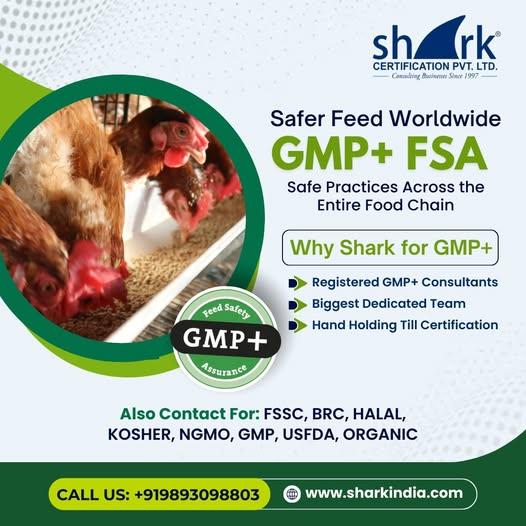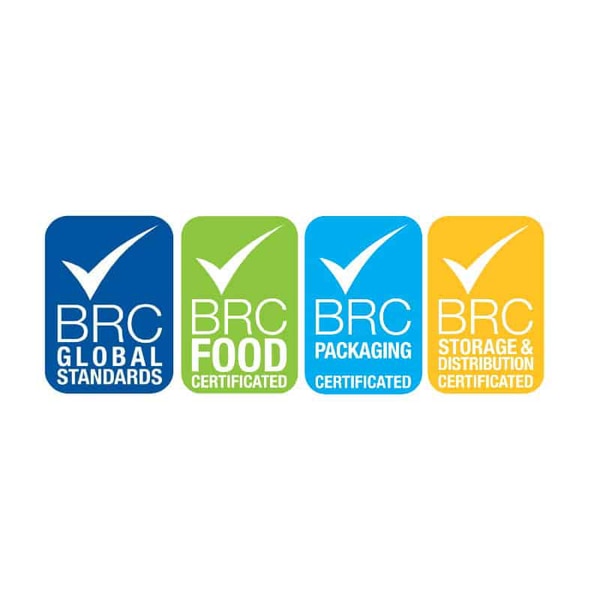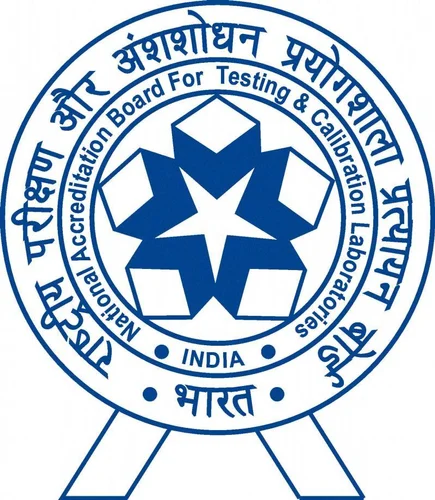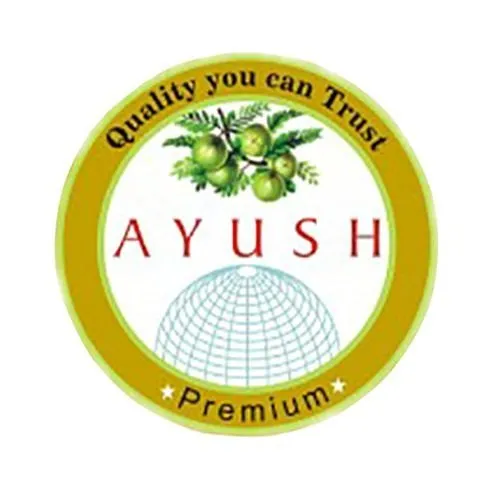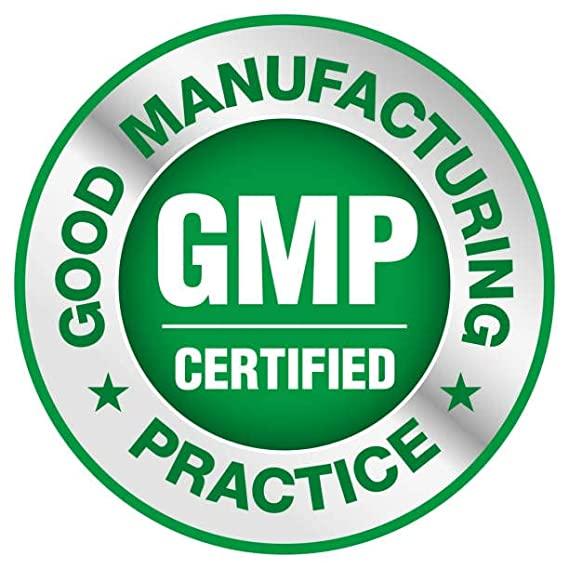Food Safety Standards
GMP+ Certification for Feed Industry
Ensuring Feed Safety and Quality Across the Supply Chain
At Shark Certification Pvt. Ltd., we provide GMP+ certification services for feed manufacturers and supply chain partners. The GMP+ standard is a globally recognized certification system that ensures the safety and quality of animal feed, while helping businesses demonstrate compliance, build customer trust, and access international markets—especially within the European Union.
What is GMP+ Certification?
GMP+ (pronounced "GMP Plus") is an independent certification standard tailored specifically for the feed industry. Built on the foundation of ISO 9001 and incorporating Hazard Analysis and Critical Control Points (HACCP) principles, GMP+ sets comprehensive requirements for the entire feed production and distribution process.
It ensures that all steps—from raw material procurement to final product delivery—are performed under strict quality and safety guidelines.
Benefits of GMP+ Certification
✅ Proven Product Safety and Quality
✅ Minimized Risk of Contamination and Non-Conformance
✅ Improved Market Access, Especially in the EU
✅ Stronger Customer Confidence and Brand Image
✅ Competitive Edge in the Global Feed Industry
Who Should Get GMP+ Certified?
GMP+ certification is suitable for all participants in the feed supply chain, including:
Feed and feed additive manufacturers
Storage and warehousing providers
Feed transport and logistics companies
Traders and distributors of feed and raw materials
Whether you operate a small-scale plant or a large multinational operation, GMP+ can be adapted to your business size and needs.
What Does the GMP+ Standard Include?
The GMP+ framework integrates:
ISO 9001-based quality management principles
HACCP-based risk assessment and control measures
Additional sector-specific requirements for feed safety
A structure tailored to specific operational roles within the feed chain
Certification is divided into several modules, addressing production, transport, storage, trading, and laboratory services in the feed sector.
The Certification Process with Shark Certification Pvt. Ltd.
Initial Consultation & Quotation – We assess your readiness and provide a tailored proposal
Implementation Support – Guidance on aligning processes and documentation with GMP+ requirements
Audit & Certification – Formal audit conducted by our experienced assessors
Certification Award – Issuance of GMP+ certificate and certification mark
Surveillance Audits – Periodic checks to ensure ongoing compliance
Recertification – A full review to renew your certification after the cycle ends
Cost of GMP+ Certification
Certification costs vary depending on your company's size, the scope of certification, and process complexity. We offer customized, no-obligation quotes based on your specific requirements. Reach out to our team for a personalized estimate.
Why Choose Shark Certification Pvt. Ltd. for GMP+?
✔ Deep knowledge of global feed and agri-supply chain regulations
✔ Extensive experience conducting feed-related audits
✔ Seamless integration with other quality certifications like ISO 9001
✔ End-to-end support—from gap analysis to audit readiness
✔ Personal, responsive service with a global reach
Ready to Strengthen Your Feed Safety Credentials?
Contact Shark Certification Pvt. Ltd. today to explore GMP+ certification for your business. Our team will guide you through every step, helping you meet international feed safety standards and unlock new market opportunities.
Price: 0 |
Payment Type: |
Available: False |
COD Available: False |
KYC Status: FAILED
Send Message


